The world dropped the ball on critical minerals and China pounced. Is it too late for Australia and the US to close the gap?
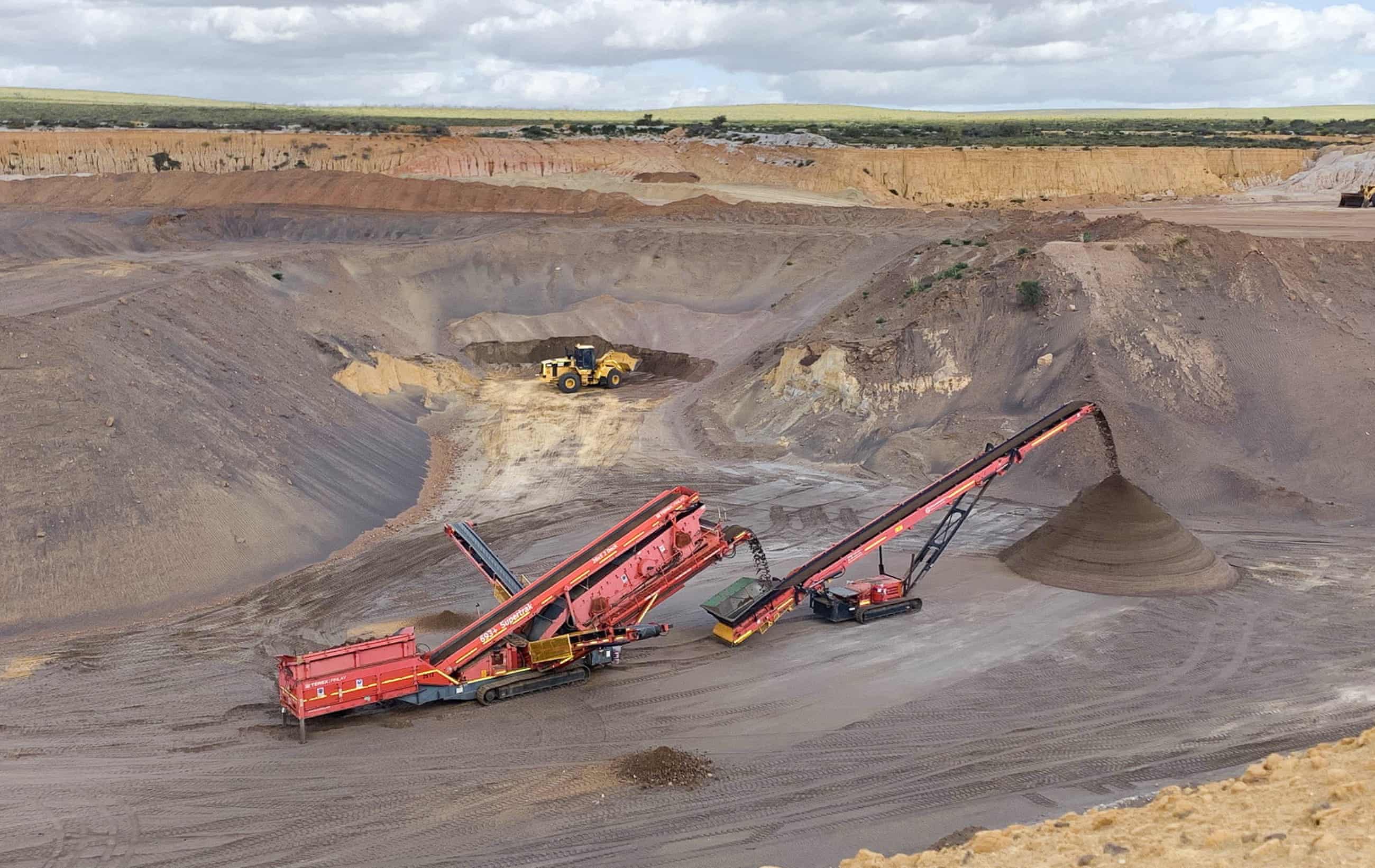
In the wake of Covid, Russia’s invasion of Ukraine and China’s assertion in global markets, western countries have realised they can’t afford such concentrated supply chainsFollow our Australia news live blog for latest updatesGet our breaking news email, free app or daily news podcastAlmost eight years to the day after the last Holden rolled off an Adelaide factory assembly line, Anthony Albanese announced a $13bn deal with Donald Trump to help champion a domestic rare-earth industry,Announcing the deal this week in Washington, the prime minister called it “a really significant day” that would take the relationship between the two countries “to the next level”,“We’re just getting started,” Albanese said,The US president claimed “in about a year from now, we’ll have so much critical mineral and rare earths, that you won’t know what to do with them”,Most Australians, it’s fair to say, would already struggle to know what to do with a kilo of gallium, for example, let alone a bucket of neodymium-praseodymium oxide.
But both are among a wide range of elements and related products that are essential to advanced manufacturing, consumer electronics, modern militaries and the clean energy transition,Rare earths are present in electric vehicles and modern batteries, solar panels and wind turbines, electronic devices like iPhones, and in defence hardware – from missile guidance systems to submarines,Turns out, we are all carrying around rare earths in our pockets,The timing of this week’s critical minerals deal with the anniversary of the last Aussie-made Holden is particularly poignant because it shows how much the world has shifted,Where once free trade ruled and cost-competitiveness trumped all other considerations – often to the detriment of workers and the environment – we are now in a more fragmented world where countries and companies increasingly value security and reliability of supply.
Australia is already an established miner of key critical minerals, including lithium, manganese, nickel-cobalt, rare earths and titanium.Sign up: AU Breaking News emailAnalysis by the Department of Industry, Science and Resources suggests we have “considerable potential in established critical mineral markets like lithium, manganese, and heavy mineral sands, as well as emerging minerals such as rare earths and high purity silica”.Our critical minerals exports could rise to more than $19bn by the end of the decade, in today’s dollars, versus a predicted $80bn for iron ore, according to DISR’s office of the chief economist.But the department believes this potential has been stymied as producers here and overseas struggle to attract investment and maintain profits in markets dominated by a single player (that is, China) that has used its muscle to crash prices and send competitors out of business.Breaking China’s near monopoly in global critical minerals markets and becoming a more valuable partner to the US are the driving forces behind this week’s deal between Albanese and Trump.
As Kevin Rudd, ambassador to the US, recently told a conference in Washington DC, Australia’s efforts in this space are about “providing long-term security of supply to the free world”.But, Rudd said, that had to be matched by buyers prepared to look past “the lowest price on available markets” in return for a secure and reliable supply of critical minerals.And it will take a lot of patience, commitment, time and money if Australia and other countries are to meaningfully close the gap with China, which now has a multidecade head start across a range of rare-earth elements and associated products.China’s chokehold on world supply is shown in the stats: the communist country accounts for roughly 70% of rare-earth mining globally, and 90% of rare-earth processing.That was an acceptable situation for western countries for a long time, as they were happy to buy cheap products they weren’t prepared to mine and make themselves.
But a more assertive China more recently has shown itself willing to use this dominance as a trade weapon, alarming politicians in Washington, particularly in the wake of Trump’s sweeping “liberation day” tariffs,The suspension of Chinese rare-earth exports in June forced carmaker Ford to pause its production line in Chicago,More recently, China has restricted the export of rare-earth magnets, which are used heavily by the US defence industry,Luke Yeaman, the CBA chief economist, says the geopolitical reality now demands “very heavy-handed and large scale intervention from the US, Australia and a range of other countries to break the dominance of China” in critical minerals,In the wake of Covid, Russia’s invasion of Ukraine and China’s more assertive approach in global markets, Yeaman says “countries have realised that they can’t afford to maintain such concentrated supply chains in any country, but especially not in China”.
That means there is “a strong economic imperative” to back a domestic rare-earth industry,“The market is clearly too concentrated, without sufficient competition and without sufficient diversification,”Sign up to Breaking News AustraliaGet the most important news as it breaksafter newsletter promotionWhile Australia may have to wait a decade or more before seeing the fruits of today’s investments in rare earths, shareholders in miners are enjoying a massive jump in paper profits,ASX-listed rare-earth mining shares have tripled in price this year alone as government announcements have sent stock values soaring,One of the first projects to receive a major investment as part of this week’s deal is to develop Alcoa’s project in Western Australia, which in 2026 will produce gallium, where China accounts for 98% of global supply.
The Australian government also announced a $100m equity stake in Arafura’s Nolans neodymium-praseodymium oxide project, which is 135km north of Alice Springs and already has $1,2bn in taxpayer-funded support,Arafura in 2032 hopes to supply 4% of the world’s NdPr oxide needs, which is used in the production of advanced magnets,For context, China produces 93% of these rare-earth magnets,As is often pointed out, rare earths are not actually rare, geologically speaking.
But no country has invested as heavily in exploiting these resources as China.China’s rare-earth industry dominates global supply and is the envy of the western world – at least in its productive capacity, if not its environmental record, says Susan Park, a professor of global governance at the University of Sydney.Park notes that the US had invested in rare earths in the 1950s and 60s, but there was little money in it, so the industry was left to languish.China from the early 90s began investing heavily in rare earths, in a strategy that extended beyond extraction and into refining, which at the time suited western countries.“Because of the significant environmental impacts, a lot of other countries were willing to let China do that,” Park says.
“So China, in many cases, said, we’re doing the right thing, we’re helping decarbonisation and we’re bearing the environmental costs of doing so,And then they get this backlash,”As Australia chases the dream of becoming a “global rare-earths superpower”, it will also need to grapple with the fact that many of these processes are heavily polluting, and in some cases, radioactive,Robert Walker, a research fellow at the Lowy Institute, says it will probably not be until the 2030s that a fully functioning and transparent market for critical minerals emerges,During that time, governments will need to act as guaranteed buyers and likely offer a minimum price to make the projects sustainable.
“The long-term projections are for demand to really keep increasing at speed, and therefore a lot of these projects need the kind of industrial subsidies and state support in the next few years to remain viable,”This year’s spike in stock prices has raised concerns that taxpayer money will be funnelled into lining shareholder pockets, and that whatever deals are entered into must deliver a return to Australia,The fact that 80% of Australia’s mining industry is foreign-owned further raises the stakes for policymakers when fashioning multibillion-dollar support packages,Park, like Walker, backs a more ambitious approach than just creating another “dig and ship” industry,“We need a full industrial strategy that really looks at the whole supply chain, not just the minerals, but refining and processing, through to a product,” she says.
“We totally missed the boat on solar panels.We designed solar panels here in Australia, and they couldn’t get investment, so they went to China, and China now dominates the solar panel industry.”
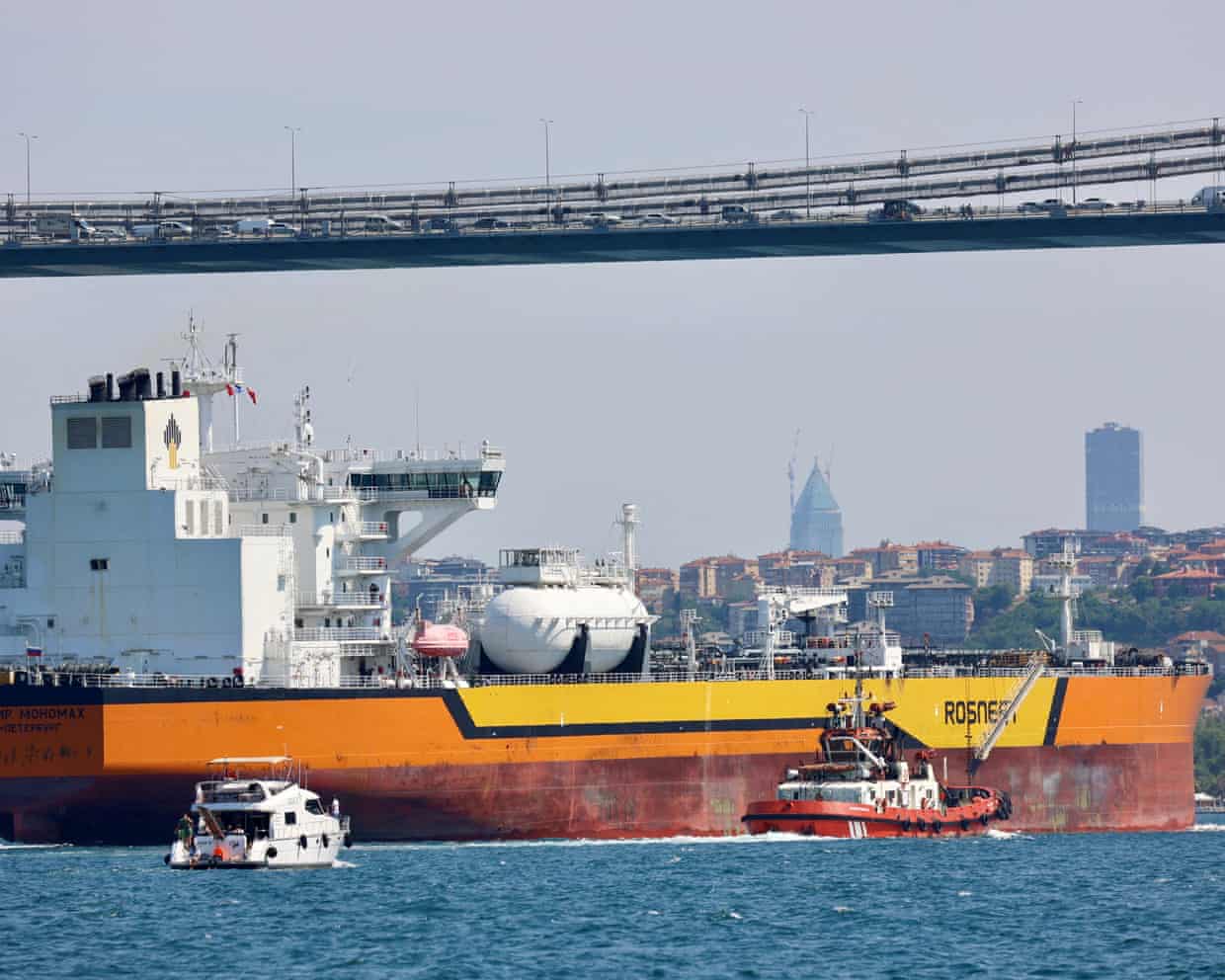
Trump sanctions have swift impact but will world stop buying Russian oil and gas?
Donald Trump’s stated mission to broker peace in Ukraine could come down to this simple question: can the US president convince the world to stop buying Russia’s fossil fuels?Last week, Trump imposed sanctions on Russia’s two largest oil companies, Rosneft and Lukoil, in an effort to damage Moscow’s ability to fund its war machine.Tom Keatinge, the founding director of the Centre for Finance and Security (CFS) at the defence thinktank Rusi, said: “The US has been more effective in 24 hours than the EU has been in the last six months. Trump is willing to say what many others are too timid or too diplomatic to say out loud. For the longest time people have been calling for Trump to pull out the sanctions hammer. It could be very significant
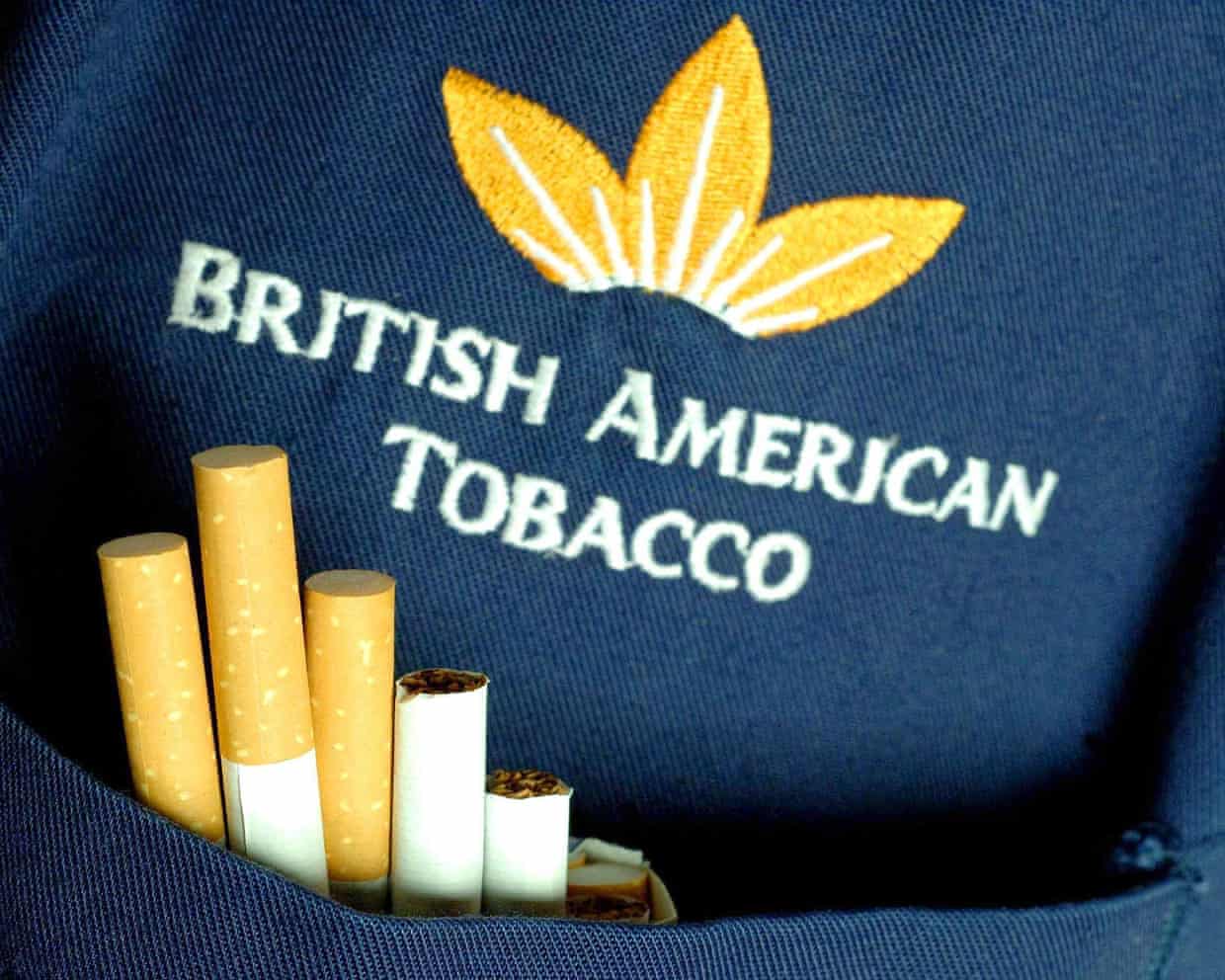
Peer trying to derail UK smoking ban discussed bill with relative at tobacco firm
A member of the House of Lords who is trying to derail the generational ban on tobacco sales discussed the legislation with a family member who is “very high up” at British American Tobacco (BAT).Lord Strathcarron is proposing amendments that would scrap the central provision of the tobacco and vapes bill, originally proposed by Rishi Sunak’s government.If the bill is passed in its original form, the UK would become only the second country to implement a so-called generational smoking ban, making it illegal to sell tobacco to anyone born after 2008.Strathcarron’s proposal is to simply raise the legal purchase age from 18 to 21.The change proposed by the peer, who in a recent speech in the Lords described cigars as “harmless”, mirrors BAT’s lobbying position

Fare game: what the battle between taxis and Uber means for your airport trip in Sydney and Melbourne
By the time you’ve exited the plane, edged through passport control and endured the baggage claim wait, your only thought may be of home or a hotel bed. But passengers at Australia’s major airports have recently noticed some changes as they contemplate the final leg of their journey.Since Friday, in a bid to deter illegal touts, a new taxi booking trial at Melbourne airport has allowed some passengers to pay a fixed fare upfront. And next month, Sydney airport will begin its own one-year trial of a $60 flat fare for the 13km journey to the CBD.The changes, supported by the taxi industry, are a sign of its struggle to remain competitive with the rideshare companies – especially Uber
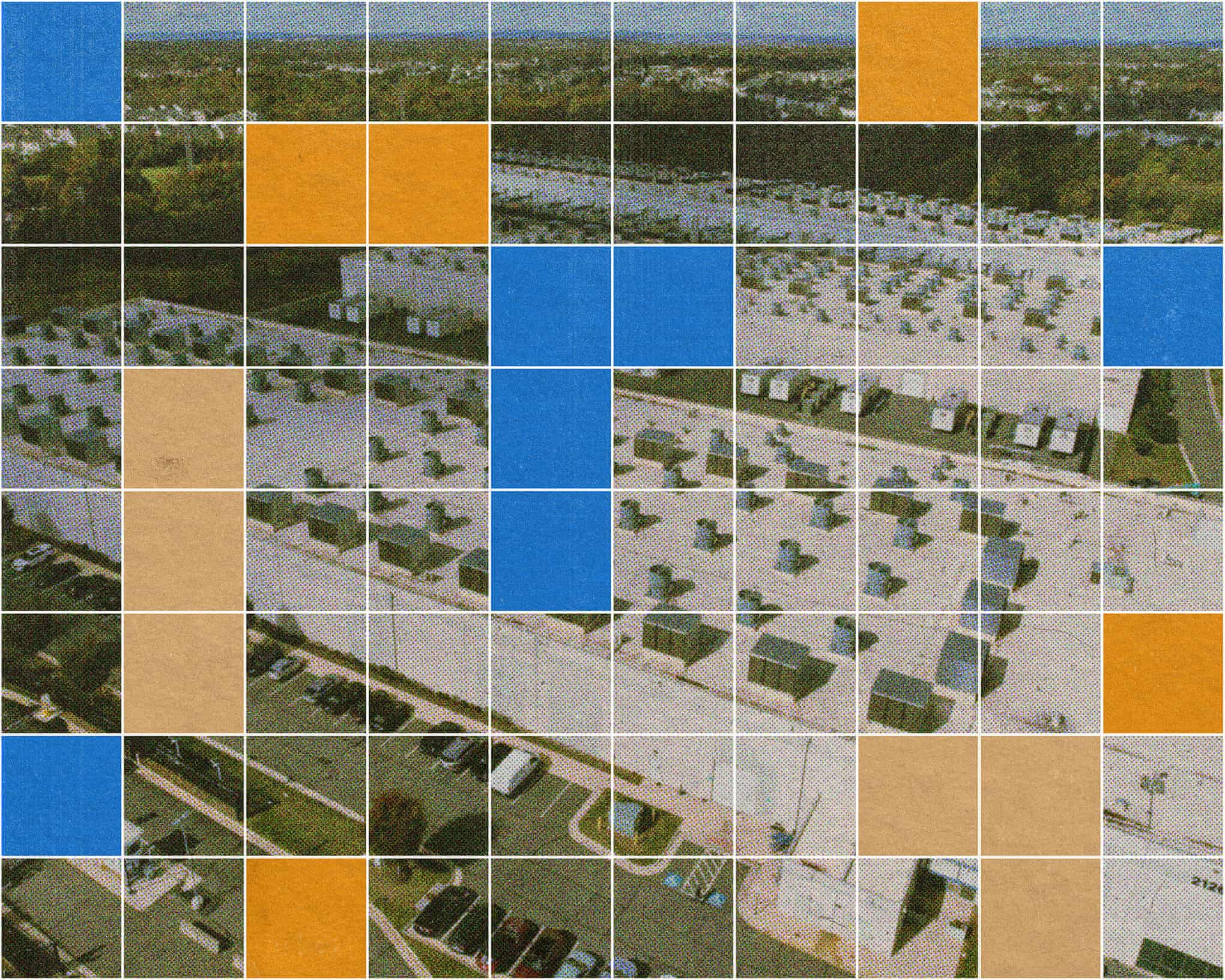
Amazon strategised about keeping its datacentres’ full water use secret, leaked document shows
Executives at world’s biggest datacenter owner grappled with disclosing information about water used to help power facilitiesAmazon strategised about keeping the public in the dark over the true extent of its datacentres’ water use, a leaked internal document reveals.The biggest owner of datacentres in the world, Amazon dwarfs competitors Microsoft and Google and is planning a huge increase in capacity as part of a push into artificial intelligence. The Seattle firm operates hundreds of active facilities, with many more in development despite concerns over how much water is being used to cool their vast arrays of circuitry.Amazon defends its approach and has taken steps to manage how efficient its water use is, but it has faced criticism over transparency. Microsoft and Google regularly publish figures for their water consumption, but Amazon has never publicly disclosed how much water its server farms consume
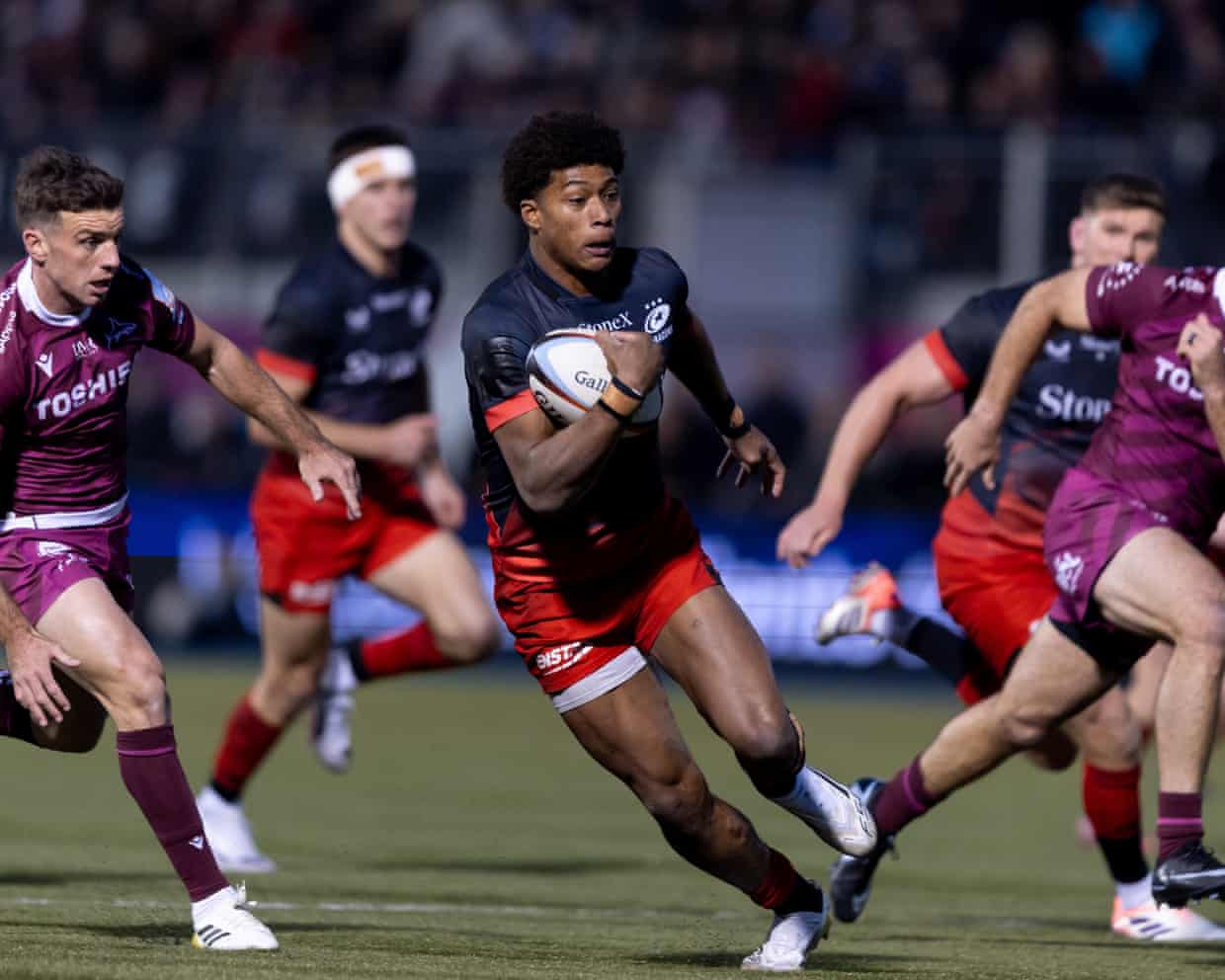
Saracens’ Noah Caluori called up by England for autumn internationals
Noah Caluori, the 19-year-old Saracens wing, has been named in England’s autumn internationals squad by Steve Borthwick.Caluori burst on to the Prem scene by scoring five tries against Sale on 18 October and, as England gear up for a busy November featuring four Tests, Borthwick has called up the uncapped youngster after initially inviting him to a training camp last week. The 36-player squad, including 19 forwards and 17 backs, gathered at Pennyhill Park in Surrey on Sunday night.Caluori made his second Prem start for Saracens in the defeat by table-topping Northampton on Friday. He had a considerably quieter night than the phenomenal display against Sale, and was given a severe defensive test by the Saints’ all-court attacking game

New York Jets legend Nick Mangold dies aged 41 while seeking kidney transplant
Nick Mangold, a hugely popular player during his 11-season career with the New York Jets, has died at the age of 41.Earlier this month, Mangold said he had been undergoing dialysis and needed a kidney transplant. He sought help from fans of the Jets and Ohio State, where he was a star in college.“In 2006, I was diagnosed with a genetic defect that has led to chronic kidney disease. After a rough summer, I’m undergoing dialysis as we look for a kidney transplant,” he wrote at the time

Timely assurance from Lear’s Kent | Letters

The Guide #214: Sleep-inducing songs and tranquilising TV – the culture that sends us to sleep (in a good way)

Seth Meyers on Trump’s White House ballroom: ‘This couldn’t be any more of a bait and switch’
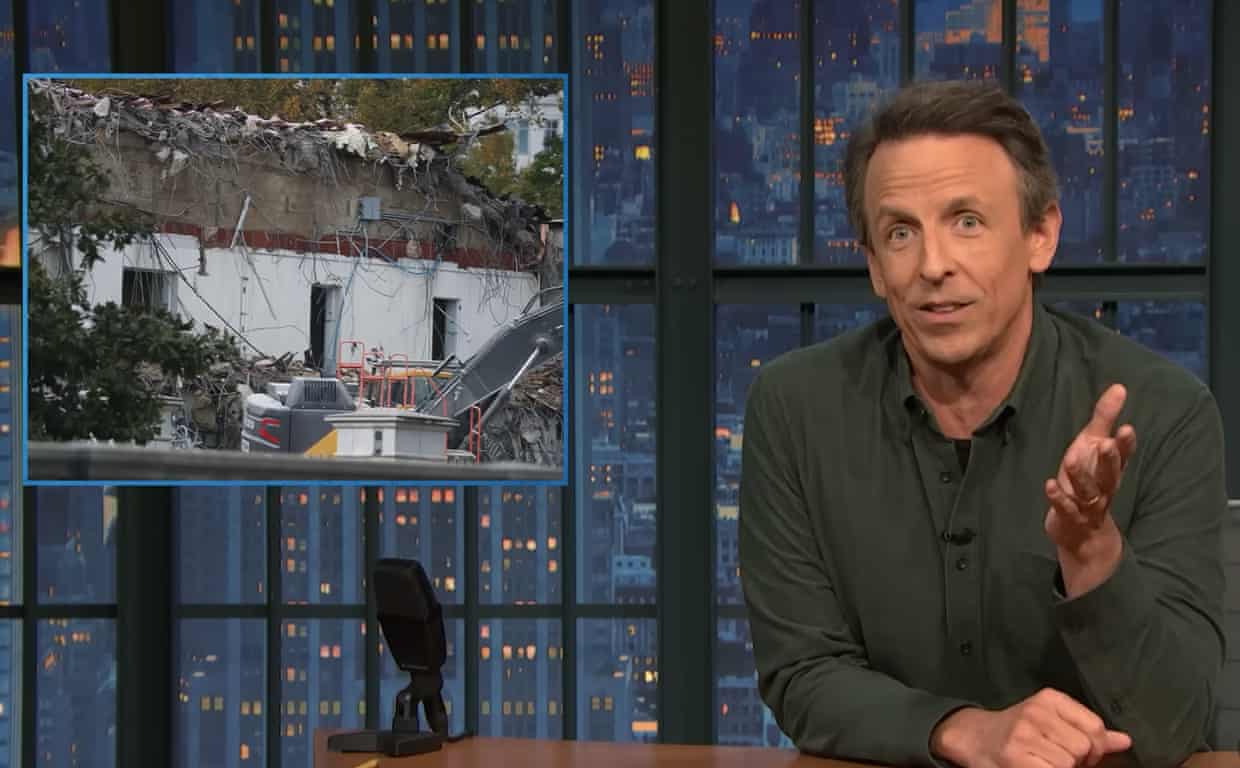
Seth Meyers on Trump’s White House demolition: ‘This is insane’
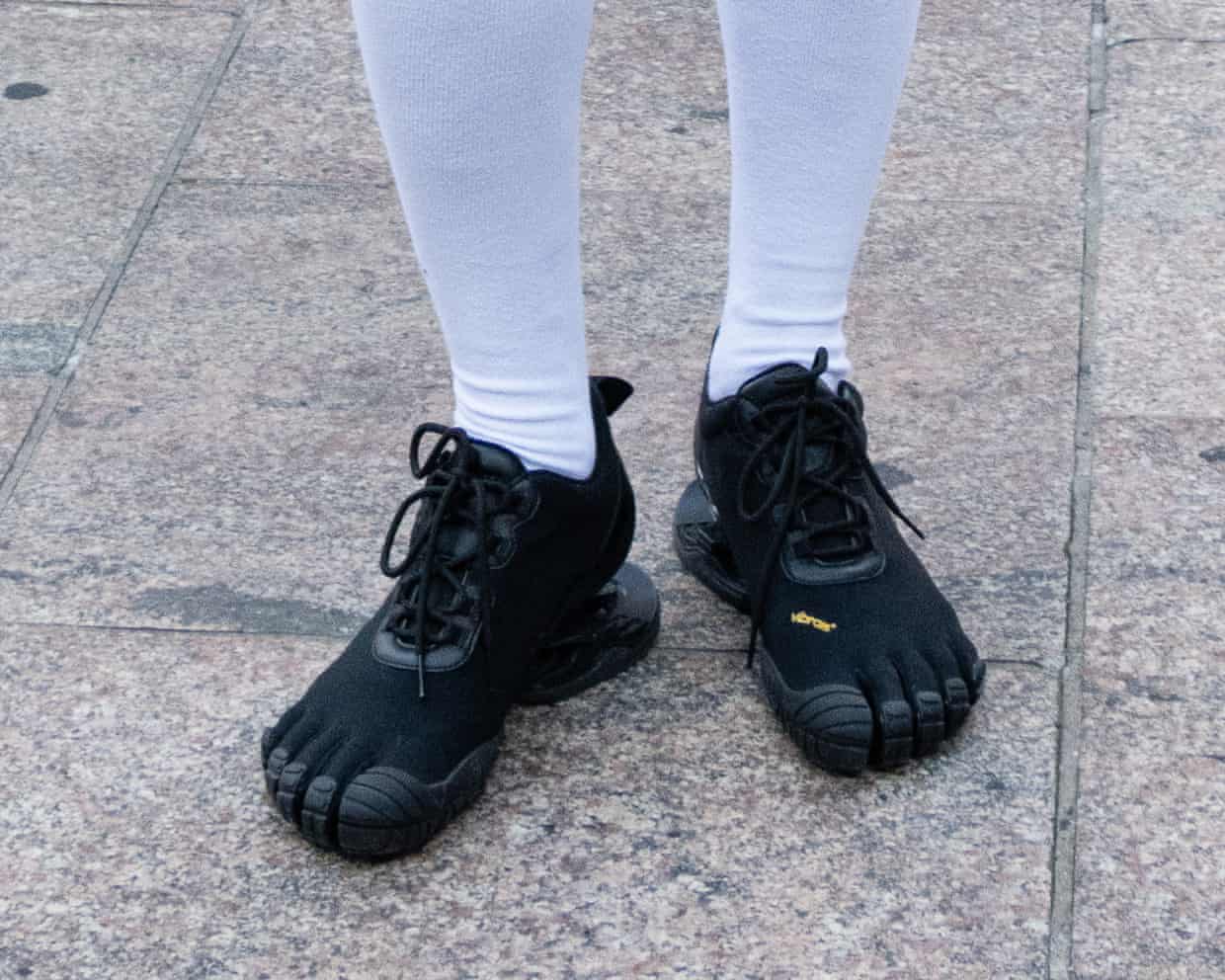
Toe-curling fashion: how did toe shoes become so popular?
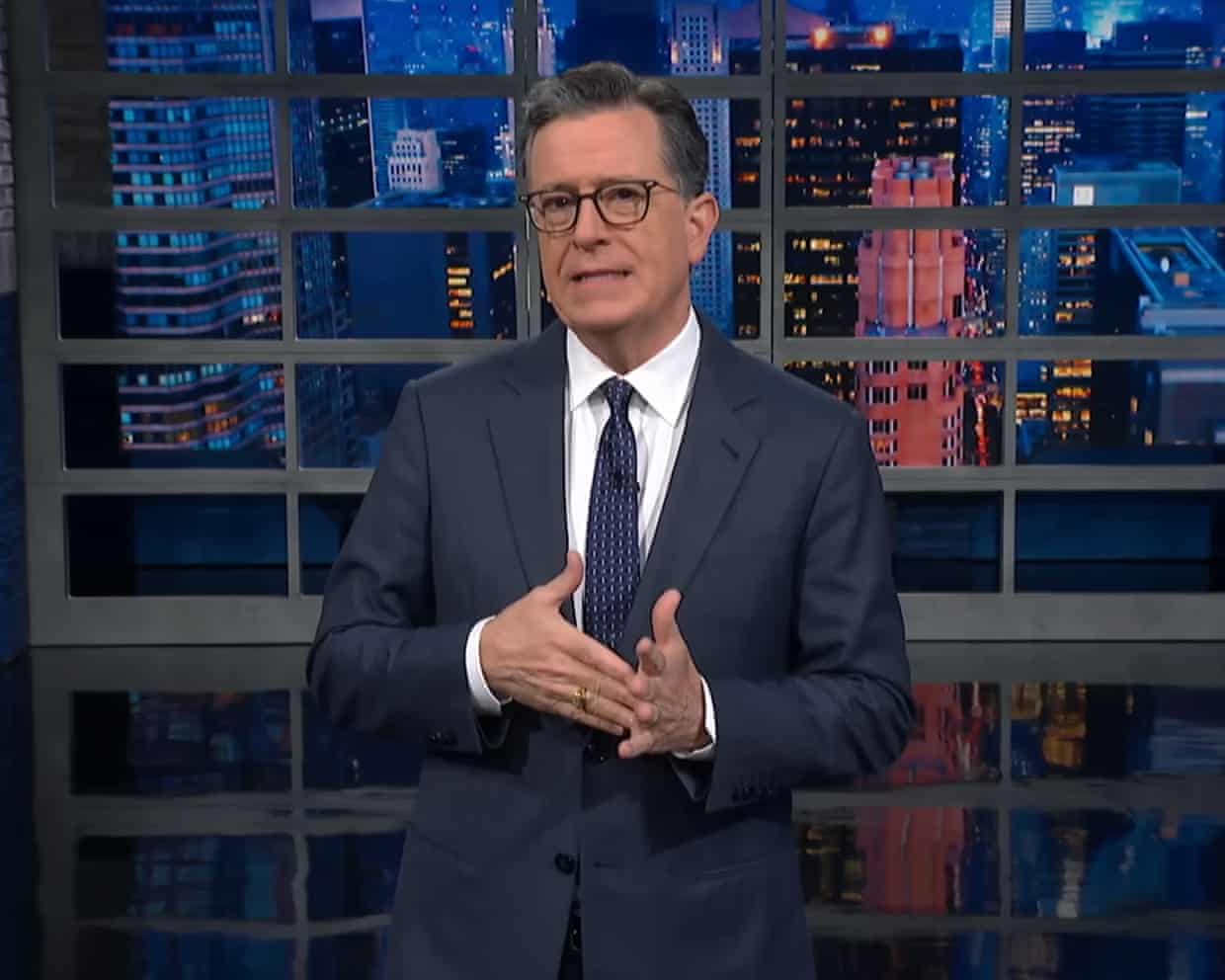
Stephen Colbert on Trump’s White House East Wing demolition: ‘So deeply unsettling’